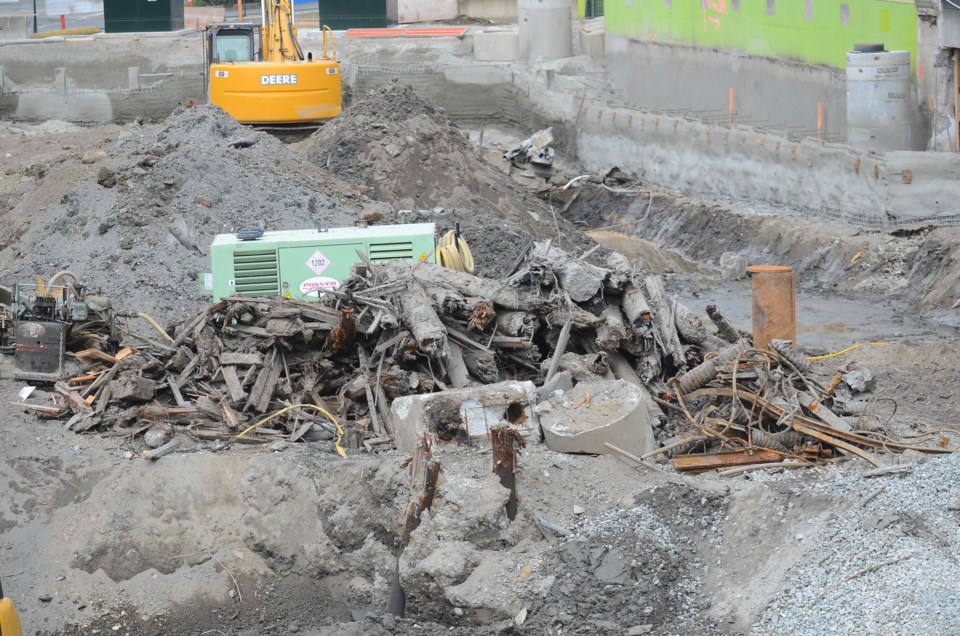New Westminster is taking a number of steps to quash concerns about pile driving.
Starting this month, construction noise, including pile driving, is permitted on Saturdays between the hours of 9 a.m. and 6 p.m., instead of the previous hours of 7 a.m. to 8 p.m. In addition, the city is considering amendments to the building bylaw that would restrict the use of diesel-impact hammer pile driving equipment over 30,000 foot pounds and is giving community members a chance to comment on the proposal on Aug. 27.
According to a staff report to council, areas requiring piled foundations for heavy building and structures include the downtown, Queensborough, Brunette Creek and Sapperton neighbourhoods. The report notes that a large number of developments are scheduled to occur over the next 10 years and many involve “significant construction activities” in densely populated areas.
“Major construction activities differ from single-family home construction in that they often involve pile driving,” said the report. “This combination has resulted in an increase in the number of construction-related noise complaints received by the city.”
In response to community concerns, council directed staff to consult with the development industry about potential ways of mitigating the impacts of pile driving, including restricting certain methods. The city also consulted with a geotechnical engineering consultant, who suggested the city may want to consider limiting the use of diesel-impact hammers over 30,000 foot pounds.
“Staff recognizes the reticence of industry on imposing such a restriction, however to effectively address the nuisance issues created by this method of pile driving such a restriction is needed,” said the report.
In addition to giving three readings to a building bylaw and inviting people to comment on the plan at its Aug. 27 meeting, council also gave three readings to amendments to the bylaw notice enforcement bylaw and the municipal ticketing information bylaw. The bylaws outline the fines associated with violations to pile driving requirements.
Kim Deighton, the city’s manager of licensing and integrated services, said the city has the ability to issue tickets under two systems – the bylaw offence notice (BON) and municipal ticketing information (MTI). Under the MTI system, the city would be able to issue a $750 fine for the use of diesel impact hammers over 30,000 foot pound for a first offence and a $1,000 fine for repeat offences; under the BON system the city would be able to issue a $300 fine for the first offence and a $500 fine for repeat offences.
“We can ticket daily, if the offence is occurring each day,” she said. “We would start with the $300. A repeat offence would be $500, but once we get our MTI system in we will be able to get $750 for a first offence and $1,000 for a second offence, then we can do $1,000 a day.”
Having two programs in place gives the city a “broader menu” of fine options, Deighton said.
But is it enough to serve as a deterrent to developers preferring to use the diesel-impact hammer technology for pile driving?
“We are in unchartered territory,” Deighton said. “This is brand new. I guess time will tell. There is always legal options if the ticketing doesn’t work. The next option would be an injunction to stop.”



